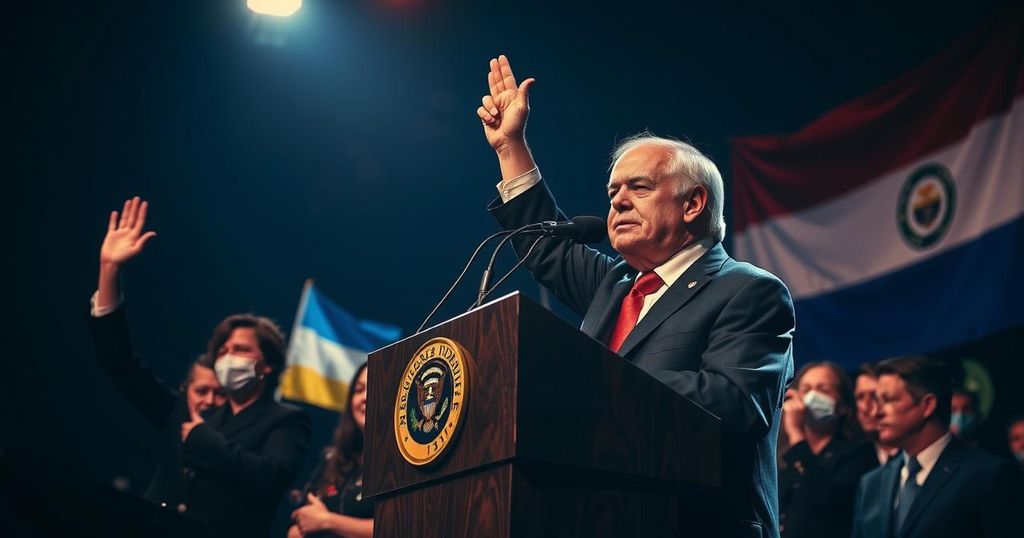World news
ALVARO DELGADO, ARGENTINA, ASIA, ATLANTIC, BROAD FRONT, COLORADO PARTY, CUBA, DELGADO, DEMOCRACY, ELECTIONS, FRONT, JOSE MUJICA, LATIN AMERICAN, LUIS LACALLE POU, MEXICO, NATIONAL PARTY, NORTH AMERICA, OR, PHILIPPINES, POLITICS, PRESIDENTIAL ELECTION, PRESIDENTIAL ELECTIONS, SOUTH AMERICA, TRADE RELATIONS, URUGUAY, VENEZUELA
Marisol Gonzalez
0 Comments
Uruguay’s Presidential Run-off Highlights Democratic Coexistence
The presidential run-off in Uruguay featured Alvaro Delgado and Yamandu Orsi emphasizing democratic cooperation and economic reforms. Both candidates sought to assure voters of their respect for the election results, amidst a broader context of political unrest in the region. The election exemplifies Uruguay’s commitment to democratic stability and peaceful electoral processes.
In Uruguay, the second round of the presidential election featured a contest between conservative candidate Alvaro Delgado and leftist contender Yamandu Orsi. Earlier in the month, in the first round of voting, Orsi garnered 44 percent of the votes, while Delgado received 27 percent. The election highlights Uruguay’s reputation amid a backdrop of political unrest in other Latin American nations, showcasing a commitment to democratic principles despite significant electoral stakes.
Yamandu Orsi, supported by former President Jose Mujica, and Alvaro Delgado, the ruling National Party candidate, both emphasized economic issues during their campaigns. While Orsi promised to raise wages for low-income workers, Delgado aimed to streamline bureaucracy and establish trade agreements, particularly with China. Each candidate has assured their intention to respect the election’s outcome and advocate for unity among all Uruguayans.
The environment surrounding this election was notably serene compared to the turmoil that characterized elections in neighboring countries. The leaders’ commitment to a peaceful democratic process reflects the broader stability that Uruguay has maintained, earning it recognition as a model of democracy in Latin America. Former candidate Andres Ojeda remarked on the tranquil atmosphere during the election, suggesting that one could not even discern that an election was occurring without prior knowledge.
Uruguay has consistently been viewed as a pillar of democratic stability in Latin America, contrasting starkly with the political violence and unrest experienced in countries like Mexico and Venezuela. As one of the few nations holding significant presidential elections in the region in recent years, Uruguay’s elections are seen as a litmus test for democratic health. The shift from leftist governance to a conservative administration in 2019 illustrated the dynamic nature of Uruguayan politics, further emphasizing the importance of this electoral cycle.
Uruguay’s presidential run-off between Alvaro Delgado and Yamandu Orsi serves as a testament to the country’s commitment to democratic coexistence, even amid increasing tensions in the region. Both candidates have pledged to respect the electoral process while prioritizing economic reforms. The election highlights Uruguay’s position as a stable democratic model in Latin America, promoting calmness and cooperation among its populace during a critical time.
Original Source: www.aljazeera.com




Post Comment